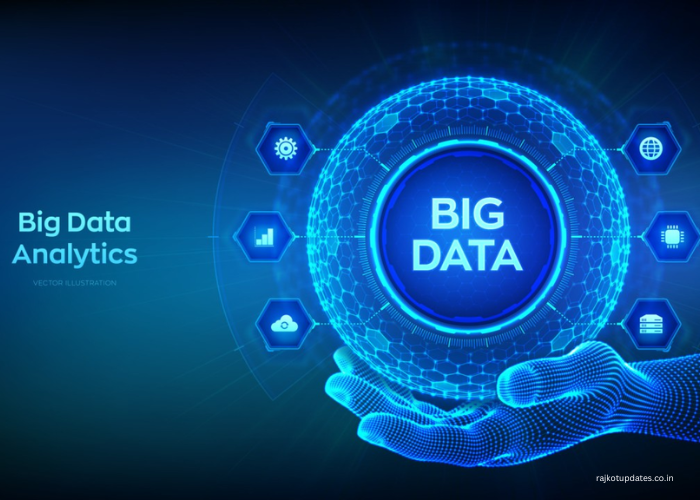In the contemporary landscape of business and technology, the term “big data” has become a cornerstone of strategic planning and operational efficiency. As organizations increasingly rely on data-driven insights to steer their decision-making processes, the role of big data has evolved from a mere trend to a fundamental aspect of modern management. This article explores the significance of data in decision making, its applications across various industries, and the transformative impact it has had on how organizations function.
Understanding Big Data
Big data refers to the vast volumes of data generated every second by various sources, including social media, online transactions, IoT devices, and more. This data is characterized by its three V’s: volume, velocity, and variety. Volume pertains to the sheer amount of data collected, velocity to the speed at which it is generated and processed, and variety to the diverse types of data, such as structured, semi-structured, and unstructured data.
In the past, organizations relied on traditional data management systems that struggled to handle the complexities of data. However, advancements in technology have led to the development of sophisticated tools and platforms that can process and analyze data efficiently. These advancements have empowered organizations to extract meaningful insights and make informed decisions based on comprehensive data analysis.
Enhancing Decision-Making with Big Data
- Data-Driven Insights and Predictive Analytics
One of the primary advantages of data is its ability to provide data-driven insights through advanced analytics. Predictive analytics, for instance, leverages historical data and statistical algorithms to forecast future trends and behaviors. By analyzing patterns and correlations within the data, organizations can make proactive decisions rather than reactive ones.
For example, in the retail industry, data analytics can predict consumer purchasing behavior, enabling companies to optimize inventory levels, personalize marketing campaigns, and improve customer satisfaction. Similarly, in healthcare, predictive models can forecast disease outbreaks and patient outcomes, facilitating timely interventions and resource allocation.
- Enhanced Customer Experience
Big data has revolutionized the way businesses understand and engage with their customers. By analyzing customer data, including preferences, behaviors, and feedback, organizations can tailor their products and services to meet individual needs. This level of personalization enhances the customer experience and fosters loyalty.
For instance, e-commerce platforms use big data to recommend products based on a user’s browsing history and previous purchases. Streaming services like Netflix utilize data to suggest content aligned with a user’s viewing habits. This personalized approach not only increases customer satisfaction but also drives sales and engagement.
- Operational Efficiency and Cost Reduction
Big data plays a crucial role in optimizing operational efficiency and reducing costs. By analyzing data related to supply chain management, production processes, and resource utilization, organizations can identify inefficiencies and areas for improvement.
In manufacturing, data analytics can monitor equipment performance and predict maintenance needs, reducing downtime and extending the lifespan of machinery. In logistics, data-driven insights can streamline routes, minimize fuel consumption, and enhance delivery times. These improvements lead to cost savings and increased operational effectiveness.
- Risk Management and Fraud Detection
In sectors such as finance and insurance, data is instrumental in risk management and fraud detection. Financial institutions utilize data to analyze transaction patterns and detect anomalies that may indicate fraudulent activity. By integrating various data sources, including transaction records and social media activity, organizations can identify and mitigate potential risks more effectively.
Insurance companies leverage b data to assess risk factors and determine policy pricing. By analyzing historical claims data and external factors, insurers can create more accurate risk models and offer personalized premiums. This data-driven approach enhances risk management and reduces the likelihood of financial losses.
- Strategic Planning and Market Research
Strategic planning is another area where big data has made a significant impact. Organizations use data analytics to conduct market research, identify emerging trends, and assess competitive landscapes. By analyzing market data, consumer behavior, and industry developments, companies can make informed strategic decisions and capitalize on new opportunities.
For example, businesses can use data to analyze social media sentiment and gauge public opinion on products or services. This information can guide product development, marketing strategies, and overall business direction. Additionally, data enables companies to monitor competitor activities and adjust their strategies accordingly.
Challenges and Considerations
While the benefits of data are substantial, there are also challenges that organizations must address. Data privacy and security are paramount concerns, as the collection and analysis of vast amounts of data can pose risks to sensitive information. Organizations must implement robust data protection measures and comply with regulations to safeguard user privacy.
Data quality is another challenge. Inaccurate or incomplete data can lead to flawed insights and erroneous decision-making. Ensuring data accuracy and implementing data governance practices are essential for maintaining the integrity of analytics.
Additionally, the sheer volume of data can be overwhelming, and organizations may struggle with integrating and analyzing disparate data sources. Investing in advanced analytics tools and technologies, along with skilled data professionals, is crucial for overcoming these challenges.
Future Trends in Big Data and Decision Making
The future of data in decision-making is poised to be even more transformative. Emerging technologies such as artificial intelligence (AI) and machine learning (ML) are enhancing data analysis capabilities and driving innovation. AI algorithms can uncover complex patterns and correlations within data, leading to more accurate predictions and insights.
The integration of data with real-time analytics is also gaining traction. Real-time data processing allows organizations to make immediate decisions based on up-to-date information, improving responsiveness and agility.
Moreover, the rise of edge computing is expected to revolutionize data processing by bringing computation closer to data sources. This approach reduces latency and enhances the efficiency of data analysis, particularly for applications involving IoT devices and real-time data streams.
Conclusion
Big data has undeniably transformed the landscape of decision making across various industries. By providing valuable insights, enhancing customer experiences, optimizing operations, and improving risk management, data has become an indispensable tool for modern organizations. As technology continues to advance, the role of data will only become more integral to strategic planning and operational success. Embracing data and leveraging its potential will be crucial for organizations seeking to maintain a competitive edge and drive innovation in the future.



